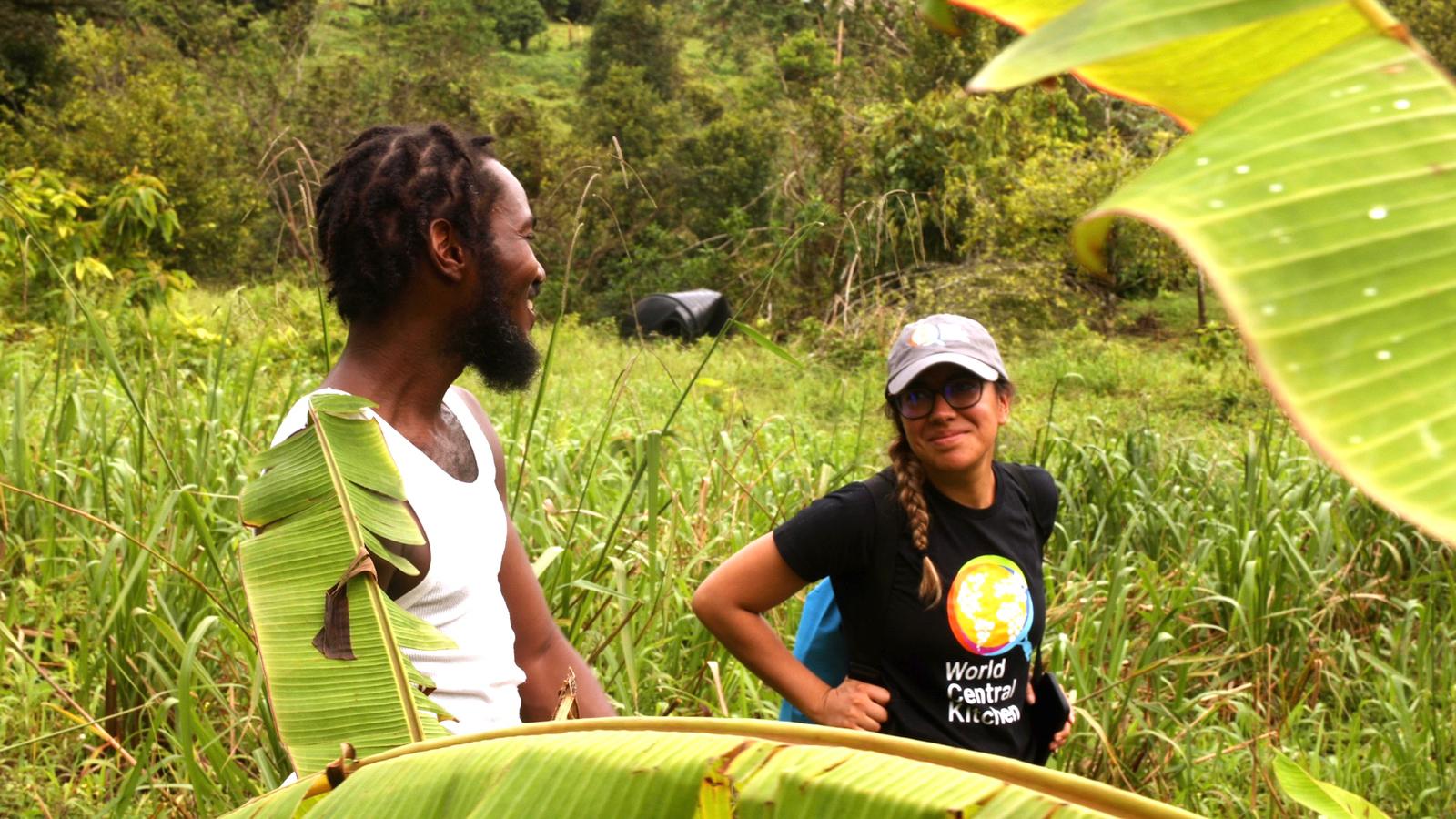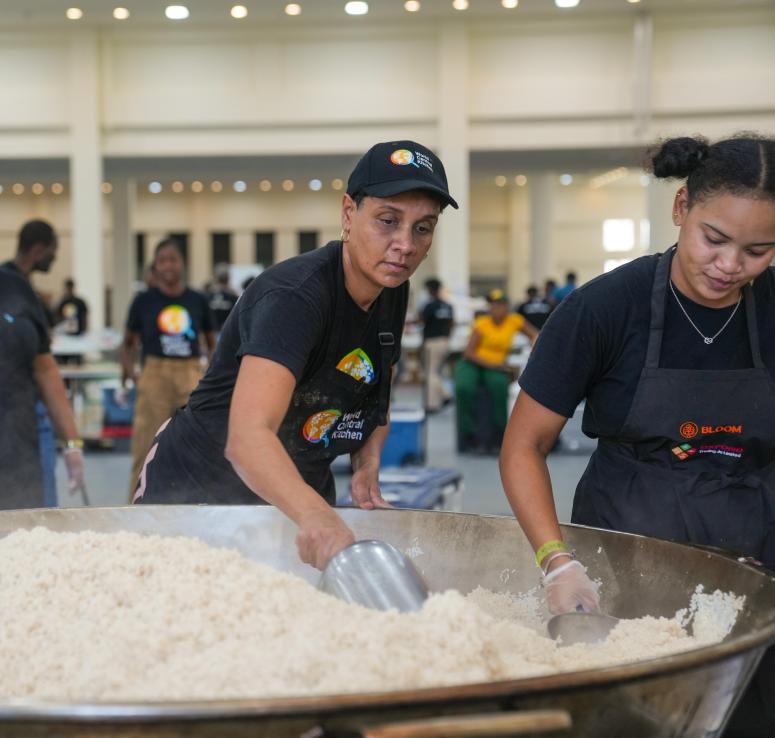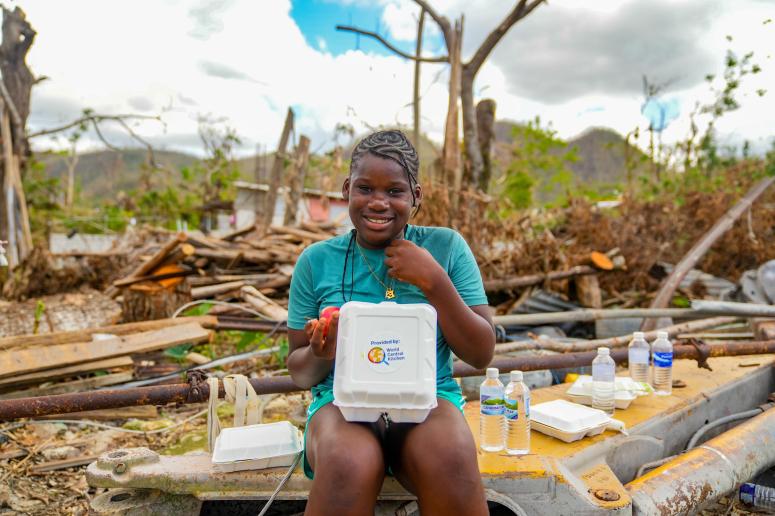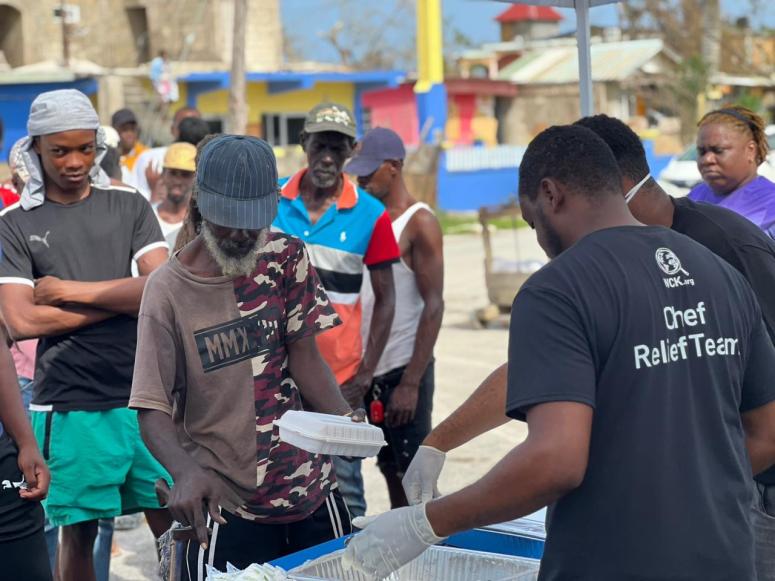Communities on the mend after Hurricane Beryl

Hurricane Beryl, the earliest-forming Category 5 hurricane ever recorded, tore across the Atlantic two months ago. Rarely do the southern Caribbean islands see such powerful storms, but Beryl tossed boats, stripped the landscape of foliage, and left thousands in the Caribbean without electricity. There were major food and water needs on several islands and as far north as Sargent and Surfside, Texas.
WCK’s Relief Team mobilized across the Caribbean, in Venezuela, and the southern US in the path created by Beryl’s unrelenting winds. Now, our last remaining team is heading home—taking with them strengthened connections for future responses and an appreciation for the determination and resilience of the people we met. In total, we served over 315,000 meals during this response.
Grenada + Saint Vincent and the Grenadines
WCK provided more than 244,000 meals throughout Grenada and Saint Vincent and the Grenadines over the two months we spent on the islands. Thanks to relationships we built during WCK’s 2021 response to the Soufriere volcano eruption, we delivered meals within 24 hours of Beryl clearing the islands. WCK team members in Saint Vincent and the Grenadines began preparing sandwiches at the French Verandah Hotel and Restaurant, where owner Keisha Browne not only allowed us to use her restaurant, but rolled up her sleeves and cooked with us.
Left: Chef Browne helps prepare sandwiches in her restaurant French Verandah. Right: Loading sandwiches onto a helicopter to be delivered.
The destruction on Union Island was catastrophic—the hurricane damaged or destroyed 90 percent of the small island’s infrastructure. The early days of our response were challenging as surrounding seas were still too rough to safely travel by boat. Helicopters were the answer. We took to the skies to deliver sandwiches, fruit, and water, and the aerial view doubled as a way to scout the full region and identify new pockets of need.
Two weeks later, WCK was actively distributing thousands of daily meals across six islands: Carriacou, Petite Martinique, St. Vincent, Canouan, Mayreau, and Union. Most islands offered walk up or drive-thru distribution points for families to receive meals, and we utilized planes, helicopters, boats, and trucks to reach communities who couldn’t visit distribution points.
The menus, created with guidance from local chefs, included Caribbean favorites like jerk chicken, mahi-mahi curry, coconut fish, and creole chicken. Chef Belinda Bishop, a WCK Chef Corps member, was a key to our success on her native Grenada and the surrounding islands. With her help, our team was able to create a Field Kitchen on Carriacou that produced thousands of meals for the island.
Chef Belinda jumped in to serve her community from the first moments after Beryl.
WCK also partnered with local farmers to ensure the chefs had the freshest ingredients possible. In this and every response, WCK strives to source everything needed to create delicious meals from the local producers to support the local economy. This is especially vital in times following disasters when economic recovery is often needed as much as physical restoration.
Jamaica
As we began scouting in Jamaica, we passed out thousands of sandwiches and patties. Patties are a traditional Jamaican street food that are a vital part of the country’s culinary heritage and daily meals. Distributing patties during our scouting missions helped our teams engage with the community—some kids even said it felt like Christmas and compared us to Santa Claus passing out gifts of patties. Our patties came from RP Juicy Patties, featuring a delicious crust made of flour and filled with various options, including chicken, beef and vegetables.
The circumstances and terrain in Jamaica inspired the team to adopt a model of using local restaurants to serve as distribution points for residents to pick up meals, eliminating the need for delivery drivers when possible. Chef Corps member Michelle Rousseau was instrumental in building relationships with restaurants, caterers, and suppliers, both before the team arrived and long after they departed.
On the island, we also supported three social kitchens: Gayle’s Landing, Sheryl’s Place, and Pan A Knock. WCK helped these kitchens repair damage caused by Beryl, provided them with any needed equipment and cookware, and then they cooked meals for people near them who were impacted by the hurricane. Most importantly, these social kitchens were places where people in the community could sit, break bread together, and encourage one another—often sharing some laughs despite the devastation around them and hard work ahead. In total, we served nearly 43,500 meals in Jamaica.
Left: WCK social kitchen Sheryl’s Place. Right: WCK team tests water quality to ensure safe meal preparation.
Venezuela
Hurricane Beryl caused a river in Sucre, Venezuela to overflow, leading to widespread flooding in the surrounding areas that affected an estimated 20,000 people. Local Response Corps member Andres Vega, who has worked with WCK for years in Venezuela, was instrumental in surveying the early need for food and water in local communities. We provided meals at a shelter housing people who had lost their homes, as well as for search and rescue teams, firefighters, and volunteers who arrived to help people clean and rebuild. With the help of Andres and a local catering company that has partnered with us before, WCK provided more than 6,000 meals in total.
Texas
Beryl hit Texas as a tropical storm with 90 miles-per-hour winds and storm surge leaving close to 3 million people without power. The Sargent Volunteer Fire Department and the town of Surfside gave our food truck partners space to park and provide meals to local families. Together, the trucks—Seoulside Wings, Blk Mkt Birria, and Churrasco—provided over 13,000 meals to communities in southern Texas. This included members of the Gulf Coast Search and Rescue Squad who accepted our meals as they worked to rescue people stranded in the high floodwater.
WCK’s Distribution Operations Manager, Brack, commented on the unity he observed. “From the food truck teams to the locals supporting their own communities—they all continue to prove that even in the worst of times, a little bit of kindness, a smile and a warm meal can give hope to those who need it the most,” he said.
Stay up to date with the latest information from the ground by signing up to our newsletter to receive more information and follow us on Instagram, Twitter, and Facebook for real time updates.











